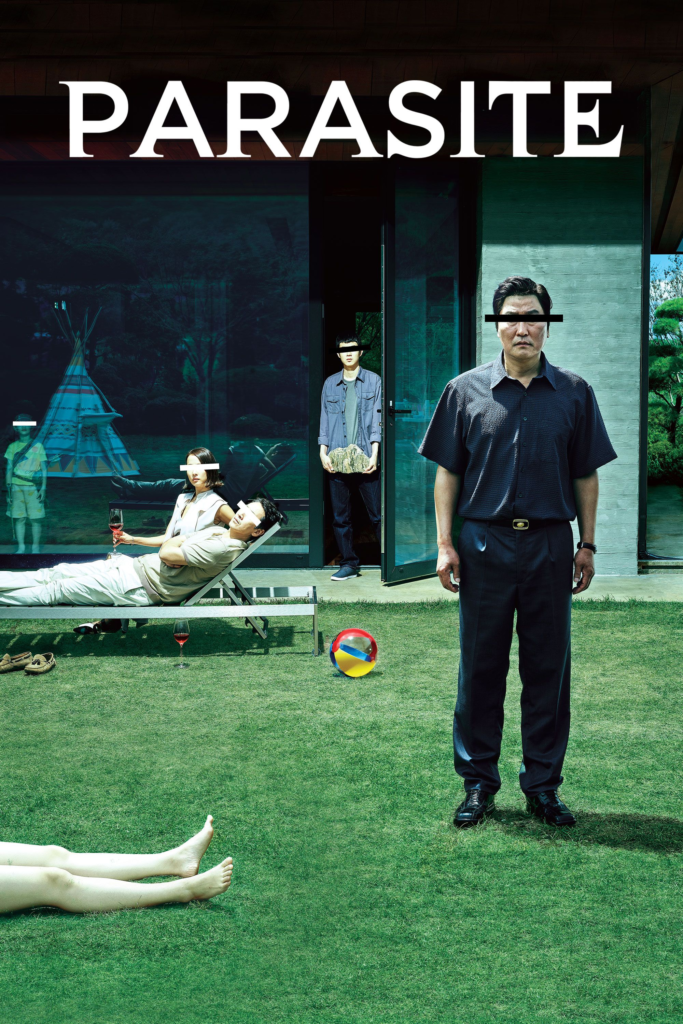Parasite Christian Review

Bong Joon-ho’s Parasite is one of those films that demands your attention from the opening shot. It pulls you in with humor and subtlety, only to take a sharp turn into something much darker, leaving you feeling unsettled but profoundly affected. There’s an undeniable thrill in watching the story unfold, but underneath the gripping narrative lies an intricate web of societal and moral questions. It’s not just a film about inequality, deception, and class. For Christians, it’s a story that offers deep reflections on human brokenness, the allure of wealth, and the dire consequences of a life lived without truth.
When I think of Parasite in a Christian context, it’s hard not to be struck by the profound sense of sin that runs through the narrative. The story is centered around two families—one rich, one poor. The Kims, who live in a cramped semi-basement apartment, and the Parks, a wealthy family oblivious to the hardships of those less fortunate. What starts as a seemingly lighthearted con, with the Kims scheming to secure jobs in the Park household, quickly unravels into a moral spiral. And it’s this unraveling that becomes the heart of the film’s Christian message.
The Idolatry of Wealth and the Temptation of Greed
Parasite is, at its core, a film about money and the way it divides us. The gap between the rich and the poor isn’t just a structural problem in the film’s world—it’s a moral one. For the Kims, the Parks’ wealth is a kind of salvation. The Parks’ luxurious lifestyle, the spacious house, the artfully arranged meals, it all represents what the Kims long for but have never known. There’s a scene early on where the Kim family, now successfully working for the Parks, revels in their newfound fortune. They sit in the Park’s living room, drinking expensive liquor and imagining their future as wealthy people. But that moment is short-lived. Soon, their lust for material wealth leads them into deeper deception, and things spiral out of control.
From a Christian lens, it’s easy to see how the pursuit of wealth in Parasite becomes a form of idolatry. Jesus warns against the dangers of placing our trust in riches, reminding us that it’s easier for a camel to pass through the eye of a needle than for a rich person to enter the kingdom of God. The Kims are driven by their desire to escape poverty, but in doing so, they allow greed to consume them. It’s not that wealth in itself is evil, but the film demonstrates how the love of money corrupts the human soul. The Kims begin by lying to get ahead, but as their lies grow, so too does their moral compromise. They are willing to step on others, even each other, to reach the top. And in the end, the pursuit of material success comes at a cost too great to bear.
The Seduction of Deception
One of the central themes in Parasite is deception. The Kims deceive the Parks to climb the social ladder, pretending to be someone they’re not. It starts innocently enough—fudging a few documents, inventing a new persona—but deception becomes a slippery slope. Before long, the Kims are caught in a web of lies so thick, they can’t escape. But here’s the thing: it’s not just the Kims who are deceivers. The Parks, in their wealth and privilege, are blind to the reality of the world around them. They live in a bubble, untouched by the poverty that surrounds them. The moment they step outside their perfect house, they’re confronted by the smell of the poor—a smell that disgusts them and reminds them of the separation between their world and the world of people like the Kims.
Deception is a universal problem in the Bible. It’s not just about lying to others, but about lying to ourselves. The Parks deceive themselves into thinking that their wealth makes them better, or at least different, from people like the Kims. The Kims, on the other hand, deceive themselves into thinking that they can climb their way out of poverty without compromising their morality. But as the film shows, both kinds of deception have devastating consequences. The Bible speaks clearly about the dangers of deception, not just for the deceived, but for the deceiver. It’s a sin that separates us from truth, from God, and from each other.
The Messiness of Humanity
What makes Parasite so striking is its portrayal of humanity in all its complexity. There are no clear heroes or villains. The Kims, despite their deceit, are a loving family just trying to survive. The Parks, though oblivious and privileged, aren’t portrayed as evil, just out of touch. This moral ambiguity is one of the film’s strengths because it reflects the real world. People are messy, and so are their motivations. It’s easy to understand why the Kims do what they do—they’re trying to survive in a system that’s stacked against them. But at the same time, it’s hard to ignore the fact that their actions hurt others.
From a Christian perspective, this messiness is a reminder of our shared human brokenness. The Bible tells us that all have sinned and fallen short of the glory of God. Parasite illustrates this truth beautifully. The Kims and the Parks are both guilty of sin, though in different ways. The Kims are driven by greed and deception, while the Parks are blind to their own privilege and indifferent to the suffering of others. Yet both families are portrayed with empathy. We understand their motivations, even as we see the consequences of their actions.
The Tragedy of Sin Without Redemption
Perhaps the most devastating aspect of Parasite is that there is no redemption. The film ends in tragedy, with violence and loss on all sides. There’s no moment of grace, no opportunity for forgiveness. For a Christian viewer, this absence is particularly heartbreaking. The Bible tells us that no matter how far we fall, redemption is always possible through Christ. But in Parasite, the characters are trapped in a cycle of sin and suffering, unable to break free. The Kims’ deception leads to violence, and by the end, there is no clear way forward for either family.
This lack of redemption might be one of the reasons why Parasite resonates so deeply. It’s a reflection of the real world, where sin often leads to destruction, and where the consequences of our actions can feel overwhelming. But as Christians, we know that there is always hope. In Christ, we are offered a way out of the darkness, a chance for forgiveness and transformation. Parasite shows us the devastating cost of sin, but it also serves as a reminder of our need for grace.
Final Thoughts: A Christian Reflection
Parasite is a masterful film that forces us to confront uncomfortable truths about ourselves and the world we live in. It’s a story about class, deception, and the human desire for something better. But it’s also a story about the consequences of sin, and the way our choices shape not only our own lives but the lives of those around us. As Christians, Parasite challenges us to think deeply about our relationship with wealth, our responsibility to the poor, and the cost of living without truth.
In the end, Parasite is a film that sticks with you long after the credits roll. It’s a sobering reflection on the human condition, and a reminder of the brokenness that exists in all of us. For its brilliance in storytelling and its deep moral questions, I would give Parasite a 9 out of 10. It’s a film that deserves to be seen, but one that also calls for thoughtful reflection, especially from a Christian perspective.




